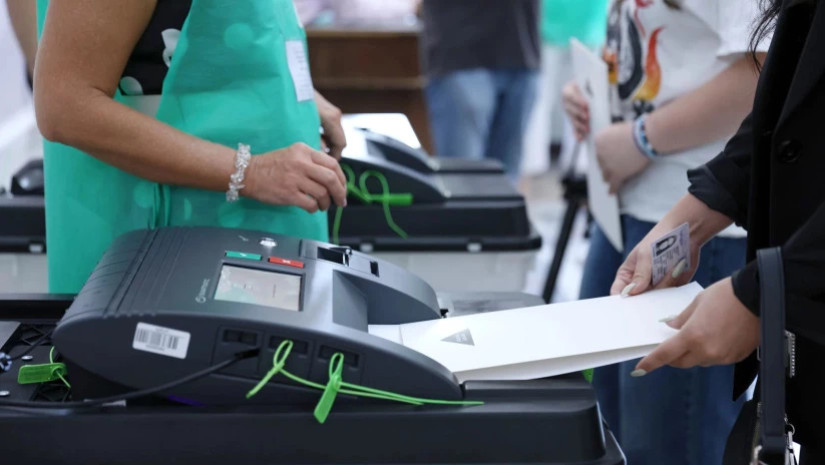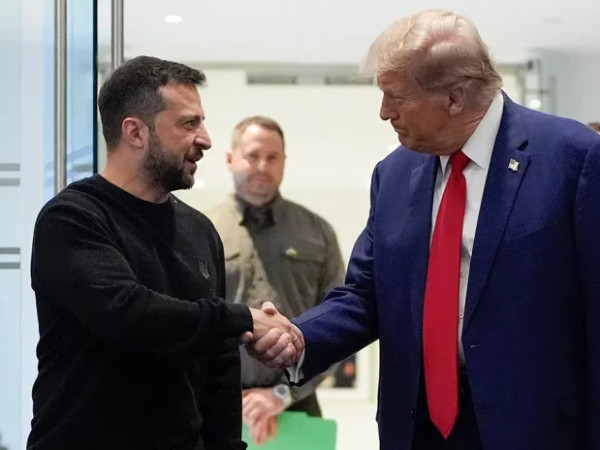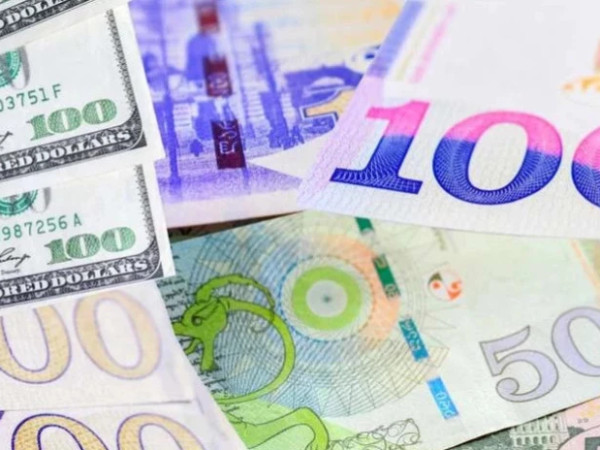Many in this South Caucasus country of 3.7 million people believe the election will be the most important of their lives, a pivotal vote on the chance to join the European Union. It pits a coalition of opposition parties against Georgian Dream, which has governed in an increasingly authoritarian fashion since 2012.
Polls indicate around 80% of Georgians favor joining the EU, and the constitution obliges leaders to pursue membership in both the bloc and NATO.
In July, Brussels put Georgia’s bid for EU entry on hold indefinitely after Georgian Dream passed a “foreign influence law,” modeled on similar legislation in Russia. It requires media, nongovernmental organizations and other nonprofit groups to register as “pursuing the interests of a foreign power” if they receive more than 20% of their funding from abroad.
Georgian Dream argues it is needed to curb harmful foreign actors trying to destabilize the country. Many journalists and activists say its true goal is to stigmatize them and restrict debate before the election.
This story, supported by the Pulitzer Center for Crisis Reporting, is part of an ongoing Associated Press series covering threats to democracy in Europe.
Georgia has long had an uneasy relationship with Russia. For most of the last century, it was ruled from Moscow until it gained independence in 1991, following the collapse of the Soviet Union.
In 2008, Georgia fought and lost a brief war with Russia, which still occupies some of its territory.
When Georgian Dream came to power in 2012, it vowed to restore civil rights and “reset” relations with Moscow. The party — set up by Bidzina Ivanishvili, a shadowy billionaire who made his fortune in Russia — also promised to pursue EU membership.
That reassured many Georgians who had seen “with their own eyes,” the threat from Russia and looked to the West to protect them, said Natia Seskuria, executive director of the Regional Institute for Security Studies in Tbilisi.
But then Georgian Dream started tracking toward Moscow: passing the foreign influence law despite mass protests, abstaining from international sanctions on Russia over its war in Ukraine, and severely curtailing LGBTQ+ rights.
Some businesspeople who support Georgian Dream also have an interest in seeing the party reelected as they have profited from its tenure. At a pro-government rally in Tbilisi Wednesday, family members of people who were awarded plum jobs in railways and infrastructure were spotted in the crowd.
Georgian Dream is conducting a “hybrid war” against its citizens, said Zurab Chiaberashvili, foreign policy secretary from the United National Movement opposition party.
Ahead of the election, campaign ads for the ruling party claimed a “Global War Party” was seeking to influence the EU and the U.S., widen the conflict in Ukraine, and force Georgian Dream from power.
Billboards also appeared, contrasting black-and-white images of destruction in Ukraine with colorful images of life in Georgia alongside the slogan, “Say no to war — choose peace.”
Many Georgians fear if Georgian Dream is reelected, it could kill off aspirations to EU membership entirely.


















